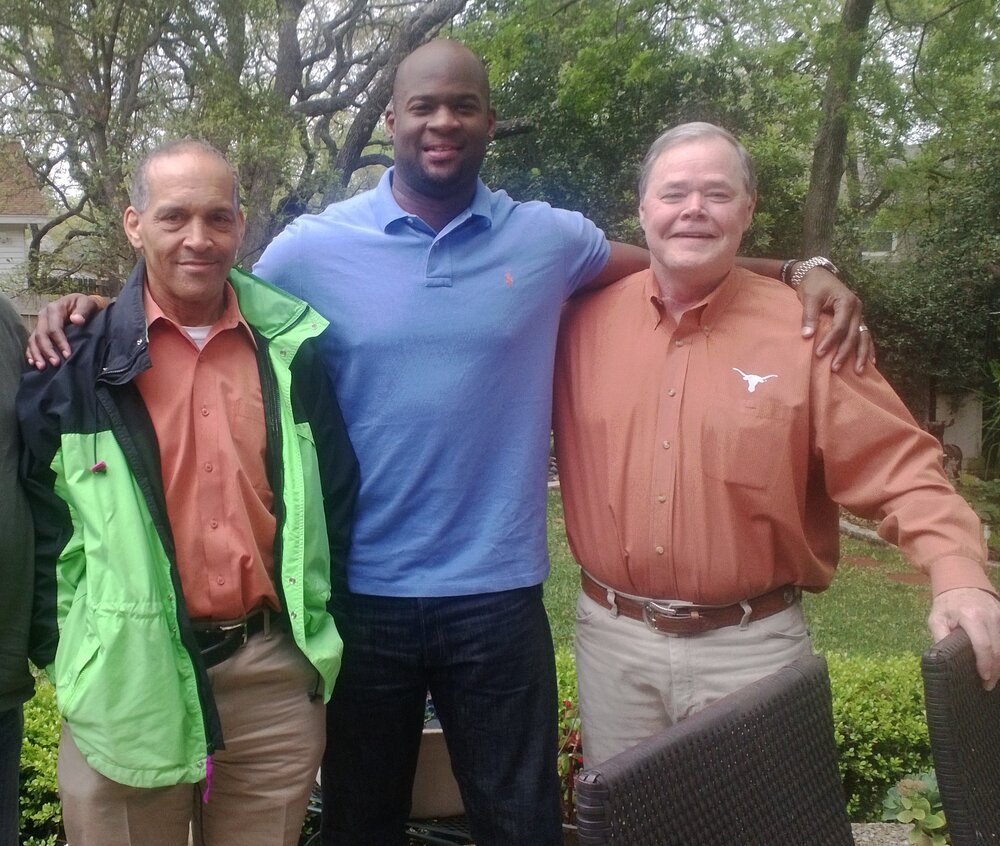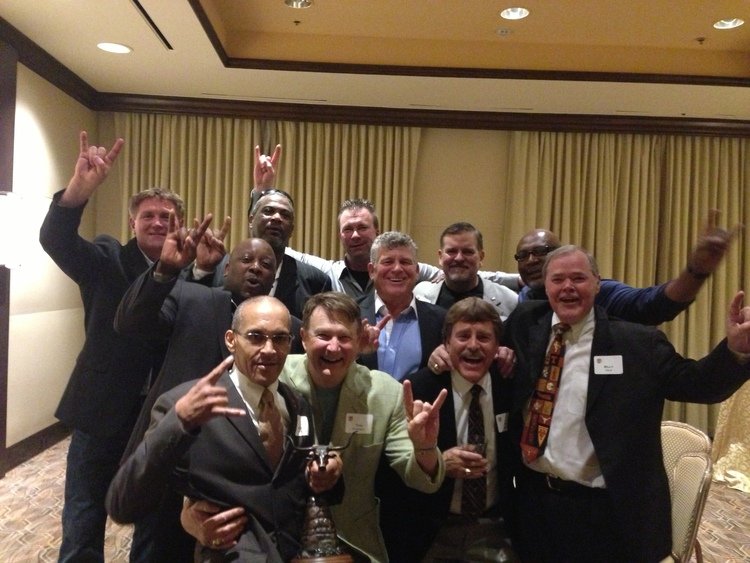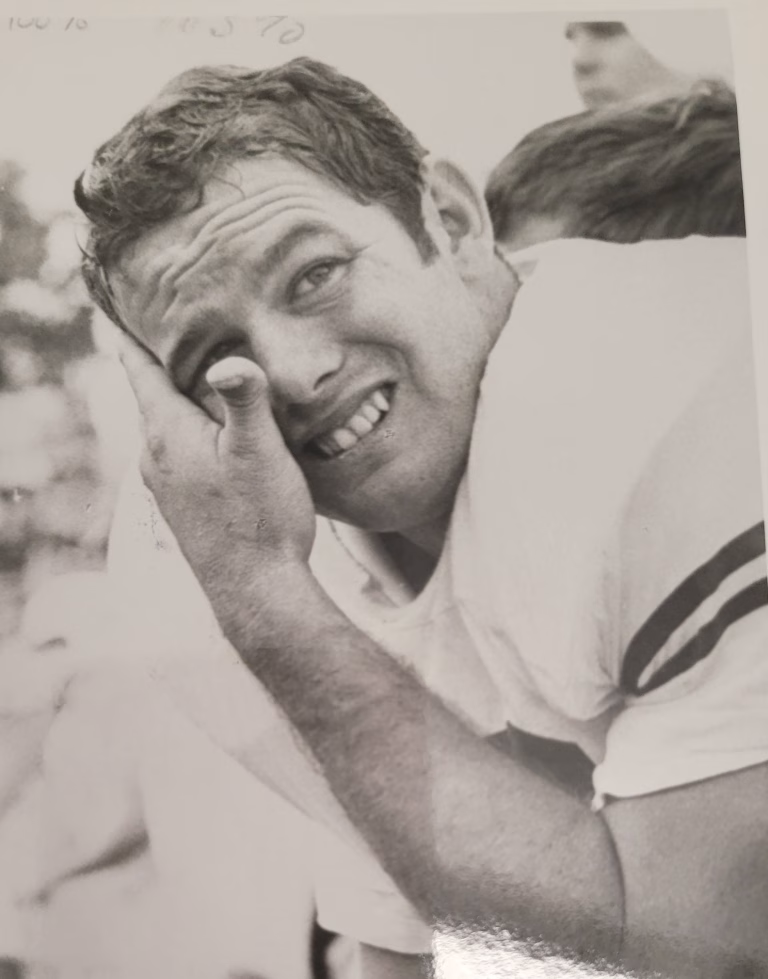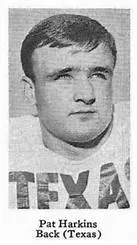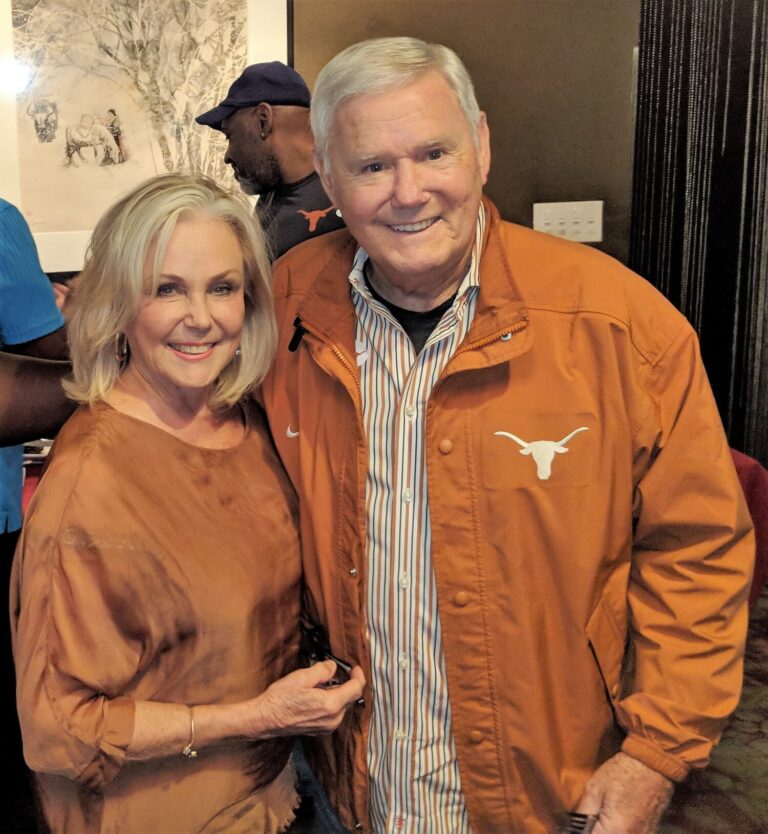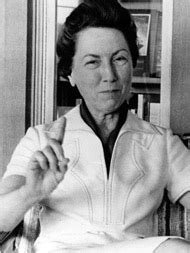Julius Whittier and Billy Dale
Learning from Julius
WHO SOMEONE ROOMS WITH SHOULD NOT BE A NEWSWORTHY EVENT. HOWEVER, ON SEPTEMBER 8, 1970, THE ASSOCIATED PRESS WROTE A "PROVOCATIVE" ARTICLE THAT SAID, "WHITTIER, TEXAS BLACK OFFENSIVE GUARD, IS ROOMING WITH A WHITE PLAYER AND OCCASIONALLY DATING WHITE WOMEN." I AM THAT "WHITE PLAYER."IN 1970 COACH ROYAL CALLED THREE SENIORS INTO HIS OFFICE AND SAID: "THERE ARE TWO PLAYERS TO A ROOM, AND ONE OF YOU THREE WILL ROOM WITH JULIUS." AS JULIUS AND I SOON LEARNED, WE HAD NOTHING IN COMMON EXCEPT THE LOVE OF FOOTBALL. WHILE JULIUS WAS A CRITICAL THINKER, I WAS NOT. IN ADDITION, CULTURAL PRISMS SEPARATED OUR LIVES. I WAS FROM WEST TEXAS AND VIEWED THE WORLD AS SIMPLE, UNCOMPLICATED, AND LINEAR. JULIUS WAS FROM SAN ANTONIO, AND HIS VIEW WAS COMPLICATED, THOUGHT-PROVOKING, DEEPLY PENETRATING, AND PERSONALLY INTRUSIVE. JULIUS FORCED ME OUTSIDE MY COMFORT ZONE, AND I DID NOT ENJOY IT. SO WE ARGUED, AND THROUGH THE PROCESS, I LEARNED MORE FROM JULIUS THAN JULIUS LEARNED FROM ME. JULIUS WHITTIER IS A VITAL PART OF LONGHORN SPORTS HISTORY, AND HIS LIFE JOURNEY DESERVES TO BE CELEBRATED. In 2013 Julius was in Austin on business and spent the night at my home. Vince Young called me and asked if he could visit and interview Julius and me for his thesis paper. He wanted to relate our story as roommates in 1970 to the present state of racial relations. Here is our picture after the interview.
Julius roomed with another black his freshman year, but he was the only black on the team by his sophomore year, and Coach needed a roommate for Julius. As in all sports, seniors are the team leaders, so Coach Royal decided a senior could help facilitate Julius’s transition to the varsity. Coach asked three seniors on the team to his office and asked one of the three to room with Julius.
JULIUS WHITTIER SAYS TO BILLY DALE “I WAS JUST TRYING TO MAKE YOU THINK.”
Living with Julius was both challenging and a blessing.
In October of 1970, Julius Whittier, after “lights out,” chose to engage me in an argument about mortality.
Julius said, “Billy, I’m never going to die,” and you are.”
I told Julius that was a ridiculous statement, but he continued to push me on the subject.
I got so frustrated with his argument that I leaped out of bed and jumped on top of him, pointing my finger at his face and saying, “It is people like you who give your race a bad name.”
Julius pushed me off him, stood beside his bed, and returned the pointing finger saying, “Did you think I was serious”? I say, “yes,” and Julius responded, “I was just trying to get you to think.”
He accomplished his goal. I learned more about life through Julius’ eyes in 6 months than I ever learned in classes at Texas. Julius challenged me to question conventional racial wisdom with the reality of a changing world.
In the book “Horns, Hogs, and Nixon Coming,” by Terry Frei says Julius was on a mission to play football first. Still, he was troubled by his teammates insulating themselves from important political, racial, and war issues facing the country. Meaning that his teammates weren’t out to change the world in any way. From my perspective, as the webmaster of this site, that is a true statement. Julius said that he was into social change, but his Longhorn teammates had no clue there were any problems.
Billy Dale, Julius Whittier, and JoEllen Dale in 2013 at Julius party after his induction into the Hall of Honor.
Julius was troubled when the expansion of Memorial stadium caused environmental changes to Waller Creek and the destruction of many beautiful old trees. Julius felt that he was part of the problem. The system he was playing in was the reason for all the destruction. On the other hand, his teammates just shrugged their shoulders and wondered why they protested over a few trees. Julius said, “They were about playing football and stepping into the life that a solid football career at a solid football school gets you.”
Most of the time, our “discussions” were based on cultural differences caused primarily by how we were raised as boys. We verbally fought like siblings, but in the end, we formed a lifetime friendship built on our love for Texas, a team bond, and mutual respect.
I am proud of Julius more for his intellect, strength of character, and resolve to challenge the University of Texas “group think” than his football skills. He was the right person at the right time to break the color barrier in Longhorn Texas football history.
Since his death, the media has written volumes about Julius’ life, but they write from a distance while I write as his roommate, who shared many “pointing finger” moments with him. As I reflect on Julius’s life journey and that one night when he told me he would never die, I now understand his comment about dying (you see, he taught me to think, after all). His legacy will never die; in that sense, Julius will live forever.
Celebrating Julius’s induction into the Longhorn Hall of Honor
The history of racial issues at Texas is discussed with a special section about Julius titled “Julius Whittier-The Benchmark.”
